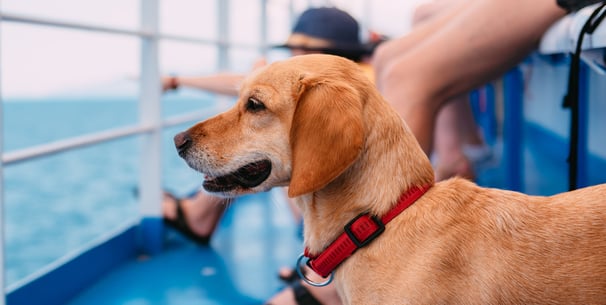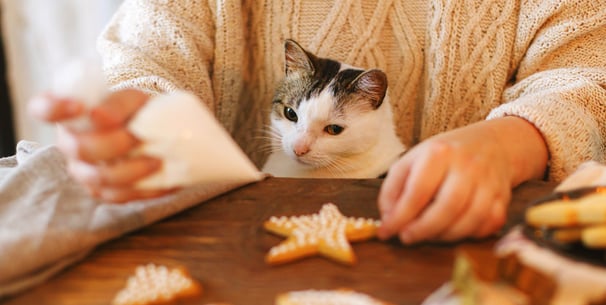You may not always feel like you're in sync with your pet, and that's fine. We've collected all the information we think might help you to reach peak pet parent. Subscribe to get the freshest posts, straight to your inbox.
Pug Grooming - Coat Types and How to Groom Your Pug
Index:



Introduction
Your Pug is basically your goofy sidekick, a trusty pal who’s always down for a laugh!
But let’s not forget, those wrinkly little nuggets come with some serious grooming demands that responsible owners have to deal with.
A Pug's grooming routine needs to account for things like itchy skin, wrinkles, and fur tumbleweeds drifting across the carpet.
With the right kit and a 15‑minute routine, pug grooming becomes bonding time, not a chore, and your sofa (mostly) stays fur‑free.
Let’s turn “uh‑oh, the dog smells” into “ahhh, fresh cuddles”.
Key takeaways
Weekly brushing keeps shedding under control and helps to spot skin issues early.
Daily wiping of the wrinkle folds prevents painful infections.
Check each paw and trim nails roughly every month to avoid posture problems.
Use mild, dog‑safe shampoo and schedule a gentle bath every 4–6 weeks.
A black Pug with a single coat may drop less hair than double‑coated siblings—but still sheds!
If you can’t comfortably brush your pug, a professional groomer can help and advise.
Clean ears, glands and teeth during the same session for full‑body peace of mind.
Why Pug grooming matters for health
Shedding & the famous double coat
Many a puzzled Pug owner discovers their short‑haired buddy moults like a Husky.
That’s because two-thirds of UK Pugs carry a double coat, meaning twice the follicles and twice the fluff.
Regular brushing loosens dead fur before it hits your jumper, especially during spring and autumn coat blows.
Mind the skin fold traps
Moist, dark creases are a playground for bacteria and yeast, making Pugs prone to fold dermatitis.
A quick daily swipe with a saline pad keeps trouble away; deeper redness needs a vet check.
Nails, ears and “back‑end admin”
Long nails alter their gait and can split painfully. Most dogs, including the Pug, may need trims every three to four weeks.
Meanwhile, compact tails make anal‑gland impaction common—ask your groomer or vet to express them during visits if required.



Core grooming tasks
Your essential grooming tools:
Grooming glove or rubber curry mitt
Soft‑bristle slicker for the thick coat of coarse hair on the shoulders
Blunt‑ended scissors for areas like the armpits and sanitary trim
Styptic powder for nail accidents
Microfibre towel for drying your Pug
Wrinkle balm for sore creases
Toothbrush and poultry‑flavoured paste
Tip: Store it all in a caddy so “grooming time” starts the moment you say the word.



Step‑by‑step routine: 15 minutes a week
1. Grooming a Pug starts with calm
Settle your dog on a non‑slip mat, scatter treats, and give a happy “ready?” notice.
Short sessions build trust; if you have a new pug puppy, you might only manage five minutes today and more next week.
2. Work the mitt or brush
Work the mitt in a massaging motion or choose a soft bristled brush. You just want to brush out the dirt, dander, and dead hairs, not scratch their skin.
You can brush against the natural direction of the hair to remove loose fur.
Sometimes, their loose undercoat rises, and you might notice puffs of Pug hair floating around the room!
Tip: The important thing to remember is that one extra minute twice a week can halve floor and sofa vacuuming later.
3. Face, folds, finish
Lift each fold, wipe, and air‑dry. If redness persists, see your vet as soon as possible—remember, old or damaged hair hides infection clues.
4. Nails & pads
Hold a paw, clip tiny slivers until you see a pale dot. Praise, treat, repeat. For black nails, you can file instead to avoid the quick.
5. Tub time
Bathing your Pug monthly removes dander without stripping oils.
Always wash your Pug from neck down, keeping the head dry; wipe the face separately.
Rinse until water runs clear, then towel‑dry and use a low heat dryer if chilly.
Here we explain the bathing basics in our handy 'how to bathe a dog guide', while 'dog shampoos for itchy skin' can help flare‑ups.



Special cases & seasonal tweaks
Fawn Pugs tend to have a thicker double coat, so expect more hair shedding spikes in spring.
A single‑coated Pug dog (often black) might not shed as much, yet still benefits from weekly mitt sessions.
Seniors and some Pug mix breeds get drier skin; swap to oatmeal shampoo and add fish oil or supplements. Our gut health guide for dogs may also be helpful.
If allergies flare, the natural loss of hair may turn into heavy shedding—this would be the time for veterinary skin tests.
When NOT to DIY
“Should I shave your pug in summer?” A lot of people ask this question but the short answer: don’t.
Clippers remove insulation, risking sunburn and overheating. Shaving Pugs can also trigger patchy regrowth.
Book professional dog grooming if:
Wrinkles smell despite cleaning
You can’t see the nail quicks due to dark claws
There’s matting near the armpits and genital zones
Quick wins to make grooming stick
1. Tag sessions to mealtimes so your little pug anticipates dinner after the brush.
2. Pop peanut butter on a lick mat (see our guide to licky mats for dogs) to keep snouts busy.
3. Practice handling during play—it works wonders if you need to give your Pug eye drops later.
4. Social butterflies? Read socialising your puppy so trips to the 'puppy salon' feel like meet‑and‑greets, not ordeals.



Ready for stress‑free shine?
Regular brushing, smart wipes and the right suds turn Pug care from messy to marvellous.
Whether you own a velvety black or sandy fawn, stick to the routine above, and your Pug's skin will thank you.
For extra peace of mind, protect every grooming mishap—itch, sprain or surprise ear infection—with Waggel Pet Insurance. Get a quote in minutes with us and spend grooming day thinking about belly rubs, not vet bills.
Waggel Pet Insurance
Need more help? You're in luck if you're a Waggel Pet Insurance member. Along with our excellent coverage, we offer access to a 24/7 online vet to answer all your sticky questions, especially if you need grooming assistance.
Not a member? Why not get a quote now and cover your furry friend for a range of illnesses, all while enjoying our amazing perks and rewards.
Want more like this?
Get updates from us with helpful info, advice, answers to frequently asked questions and much more.
Index:
Related posts:
Get your quote
Along with our excellent coverage, we offer access to a 24/7 online vet to answer all your sticky questions.





